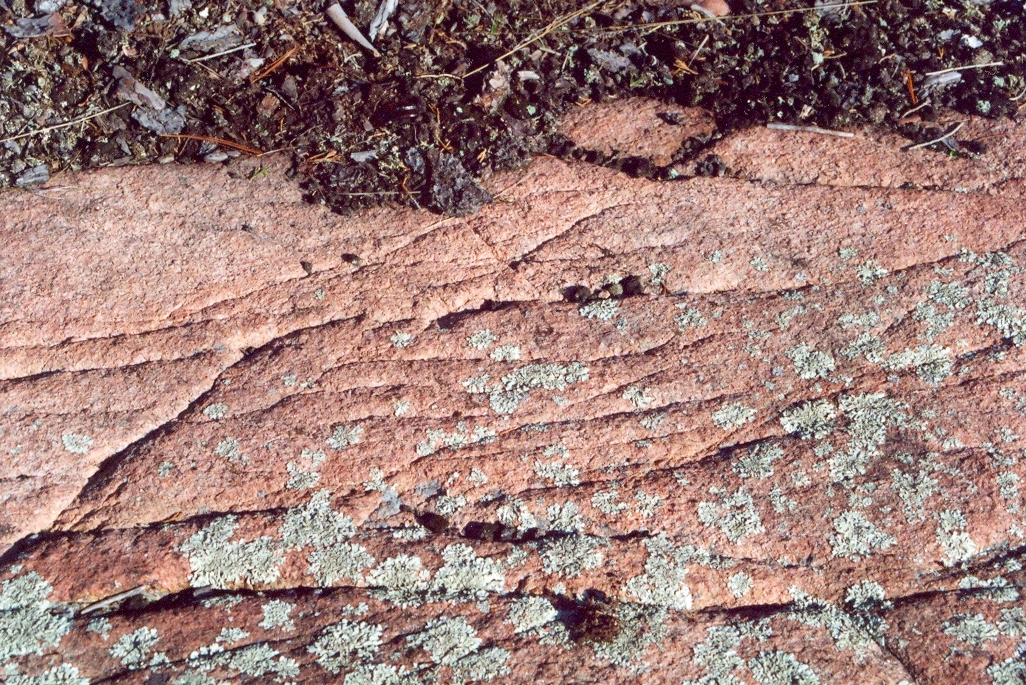
THE ROCKS REMAIN
Excerpt From The View From Foley Mountain
Everyone needs a special place of retreat when things are hard, a place to be alone to think. When my family sees me head out to my thinking place, the big stretches of pink granite that run through the fields in front of our house, they know I am not to be disturbed. I come to the rocks, the most solid and lasting thing I am likely to know, because I prize the sense of endurance that they give me. I come to the sunwarmed, rounded surfaces seeking their constancy and seeing in them the bones of the earth. For some time I sit drinking in the deep peace of the passive rocks, thankful to feel my mind turn from whatever external storms have sent me to this respite.
“The rocks remain,” I often mutter to myself, yet I never can help noticing that, written on their hardness is a history of violence and change. Running north-south are broad, dark scrapes of glaciers, marks that never fail to arrest me, no matter what problems I bring to sort out on the rocks. Seeing the scars that the grinding ice carved in the formidably hard rock, I can never be lulled into forgetting that our real foundation is change.
This violence of change that I read of in the granite has been brought home forcefully by recent volcanic eruptions. Within a span of years, as with the action of glaciers, or within days, as with volcanoes, the face of the earth in that area can change absolutely. In an odd way it pleases me to think that humans are not the masters of their surroundings that they would wish to be.
The flowing marks are all the more to be wondered at because they were caused by ice, ice which I usually do not associate with force, and it must have been a singular force indeed to imbed in such hardness traces that have lasted so many centuries. I stretch forward to stroke the glacial striations and imagine the strife these rocks must have faced.
The granite on which I sit so solidly has known fire as well as ice. An igneous rock, it began as a mixture of molten minerals within the earth. A billion years ago the liquid granite-to-be spewed up into air pockets that were made as the mountains of the Pre-Cambrian Shield were formed. Once these low, rounded rocks lay within mountains that towered 4,000 meters. How the problems of a human shrink to scale before such a thought.
Signs of change ahead lie before me at my feet as well. In the pockets of the rocks, grains of sand have collected. Even the hardness of exposed granite wears away. What were once mountains are now hills, and before my feet, as soil gathers and plant growth begins, are the signs of the new life that will form someday over the bare rocks.
Thinking of the rocks and the changes they have experienced, I cannot escape the thought that my own body is in harmony with the flux of the granite. How can I say I know my limits when I know also that all my cells will change completely and often during my life? How can I say that I am this or that? At any time with me is the possibility of change.
I sought the rocks for solace and answers, but, as always, I will leave them with the knowledge that my life is as secure as the variable wind that plays across my face or the very rocks at my feet. I don’t know if I will ever be completely reconciled to this, but, participating in a small way in the life and death of mountains gives me much to be glad of.